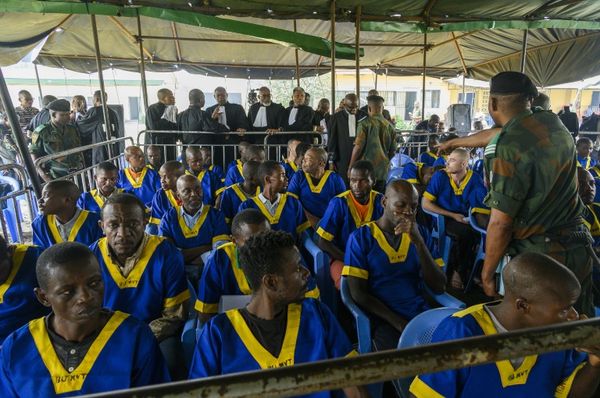
Staffing schedules forced Metlink to cut services on two of Wellington's three busiest lines in early May, even though they weren't subject to speed restrictions, Marc Daalder reports
Three days of major disruption to train commutes in Wellington at the start of the month were blamed on KiwiRail, but official correspondence released to Newsroom shows only one of the three lines that ran on reduced frequencies was actually required to by the state-owned enterprise.
Late on Friday, April 28, KiwiRail and Metlink (the public transport arm of Greater Wellington Regional Council) announced that Wellington's three busiest train lines would be running at half capacity for the month of May.
At issue was a Track Evaluation Car, which runs along train lines and ensures they're in working order. There's only one in the country, owned by KiwiRail, and it was in Auckland – and broken.
READ MORE: * Pleas for deeper look into KiwiRail failure * The Detail: How KiwiRail got off track
"Due to unforeseen technical issues with the Track Evaluation Car, we have been unable to undertake the necessary inspections due on the Kāpiti line by the start of May. The machine also needs to assess the Hutt Valley and Wairarapa lines by 7 May. As a result, these lines will no longer be compliant and we need to put temporary speed restrictions in place to meet our regulatory requirements. It’s similar to the warrant of fitness on a car expiring," Siva Sivapakkiam, KiwiRail's COO, said in a statement.
"From Monday 1 May, a 70km/h speed restriction will be in place. This will limit train speeds and frequency, requiring Metlink passenger services across Wellington to operate to a reduced timetable."
What wasn't explicitly mentioned was that the speed restriction had only been placed on the Kāpiti line, which services Porirua as well as the Kāpiti Coast.
In response to Newsroom's request for official correspondence relating to the incident, Metlink general manager Samantha Gain said services were cut on the two other most popular lines, to Johnsonville and the Hutt Valley, because of the knock-on impact on staffing schedules from the delayed Kāpiti trains. In fact, the Johnsonville line doesn't even reach 70 km/hr in the first place.
"As understood by KiwiRail, the operational integration of Metlink rail services across the Wellington metro rail network (Kāpiti line, Johnsonville line, and Hutt Valley line) means that a temporary speed restriction on one line has impacts for the whole network. Transdev’s staffing and rostering requirements meant that a reduction of services was necessary not only on the Kāpiti line, but also on the Johnsonville and Hutt Valley lines," she said.
Internal correspondence sheds more light on the specific issues, with rail services lead Daniel Pou explaining the staffing conundrum in response to a public query.
"Yes all lines are interlinked, so trains and staff move from one line to another – if one line has issues it does affect all lines and creates more of a mess; if a service is running late on the Kapiti line, that crew will be late to their next service," he wrote.
In a statement to Newsroom, Gain said safety clauses in staff contracts forbid them from being assigned to work a single line.
"Changing lines encourages train drivers to maintain awareness of their speed and surroundings."
The emails also show Metlink working to hide the fact that only one line was subject to speed restrictions. Talking points issued to call centre staff stated the service cuts were due to "the implementation of a 70K Temporary Speed Restriction (TSR) across the entire network".
On the first day of the disruptions, KiwiRail contacted Metlink with a draft statement saying the TEC would reach Wellington that evening and begin its work. The press release said "there are currently no blanket speed restrictions on other Wellington metro lines", which Metlink staff internally called "cheeky".
Metlink comms staffer Matthew O'Driscoll responded to KiwiRail, arguing, "If you are going to talk about speed restriction only limited to Kapiti you need to own the context around it for the whole of our network. Having one line out limits our ability for train/staff movement, still means we need to re-roster staff and still means we need a reduced timetable on all other lines."
KiwiRail pushed back lightly, noting "the bit about speed restrictions is factual – there is currently only one as of today – on the Kapiti line".
In the end, the statement made a more oblique reference to the lack of restrictions on the Johnsonville and Hutt lines.
"Good outcome – they changed the two parts we didn't like. They still have a sentence about blanket restrictions but this is much better," O'Driscoll emailed Gain later that day.
Newsroom asked Metlink about the lack of transparency about the extent of the speed restrictions and also asked about the overall resilience of the network to future disruptions on single lines cascading into other services. In her statement, Gain did not provide a clear answer to these questions.
"We welcome the review commissioned by the minister into this incident. In the meantime, Greater Wellington’s Chair has sought assurances from KiwiRail on a range of issues which are now under discussion," she said in response to the query about resilience. The review is expected to focus mainly on KiwiRail's handling of the incident rather than Metlink's management of the Wellington rail network.
The documents released to Newsroom also show Auckland was at risk of experiencing similar blanket speed restrictions in the second week of May.
In an apology letter to Gain on April 28, Sivapakkiam explained that the TEC might be able to reach Wellington within days, but was needed back in Auckland by May 8 to avoid rail lines there from falling out of compliance as well.
"The TEC is scheduled for similar work in Auckland from 8 May 2023, and this needs to occur to avoid a similar outcome happening there," he wrote.
In a statement to Newsroom, Sivapakkiam said Auckland's rail lines needed to be checked by May 15.
"The TEC was scheduled to carry out assessments on the Auckland network from 8 May. It carried out this work on 10 and 11 May. Compliance on some parts of the Auckland metro network was due to expire on the morning of Monday, 15 May," he said.
"Auckland assessments were done on schedule. Auckland Transport and Auckland One Rail were aware of the issues in Wellington by 1 May, we met with them and kept them regularly informed of progress until the TEC had completed its Auckland work."







